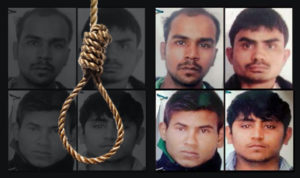In 2012, the Nirbhaya gangrape case took the world by a storm!
Jyoti Singh, a 23-year-old student, was gang-raped on a moving bus. Her attackers then threw her from the moving bus, leaving her to die. Despite medical attention, she died from her injuries thirteen days after the attack.
This case was instrumental in bringing attention to the topic of rape not just in India, but around the world. In 2013, the men received charges of rape and murder, and sentenced to death. One of the attackers committed suicide in prison. The juvenile involved served a three year sentence prior to his release in 2015.
The remaining men received death sentences as punishment for their crimes of rape and murder. On May 5, 2017, the Supreme Court rejected appeals made by the defendants . The death sentences remained.
Despite the victory for Jyoti Singh’s family, some question the ethics behind the death sentence for the attackers. Regardless of differences of opinions regarding the sentences, we can all agree that convicting the rapists was necessary. Rape is a problem in India, with many cases going unreported or lacking convictions.
What can we do to put an end to rape culture?
- Sexual education in schools can encourage discussion about sex and consent earlier, while decreasing the stigma associated with rape
- There needs to be a greater push for women’s equality and empowerment
- More convictions of attackers will make consequences more apparent
- Bringing an end to victim blaming will help reduce the stigma associated with rape victims after their attacks
We must all come together to change the idea that rape is just a “woman’s issue” and make it known that rape is an issue to everyone, regardless of gender. Through verdicts like the one in the Nirbhaya case, rape is viewed as a serious crime with serious punishments. This case is groundbreaking for the convictions of rapists.
This verdict serves as a victory not only to Jyoti Singh, but to women everywhere. The verdict of the Nirbhaya Case serves as a beacon of hope. Hope for victims who are afraid of reporting their case because of existing stigmas surrounding rape. Hope for victims that their cases can end in convictions, and not disappear without consequence for their attackers.
About the Author

Kathryn Pitts is a Political Science major at Georgia State University, pursuing a career in the non-profit sector. She is aiming to work with refugees, specifically women and children, and women’s rights on a global scale. She is passionate about volunteer work and strives to help others every day. Kathryn also enjoys playing with her dog and hiking on weekends off.
Image Source: India.com
